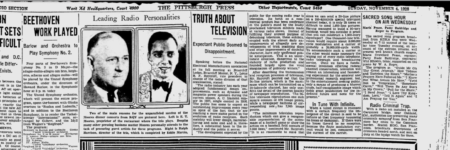Prefer to listen instead? We add new stories regularly to the podcast Timber—Stories for Podcasters.
As soon as Serial ended, Rabia Chaudry knew she needed to act. It was 2014. Sarah Koenig’s 12-parter, about the 1999 murder of Hae Min Lee, had just changed podcasting forever. The New York Times called Serial “podcasting’s first breakout hit.” Users downloaded Serial 175 million times, and it won the 2015 Peabody Award.
But Chaudry, a Baltimore-based lawyer and activist, was unhappy. She had known the man convicted for Lee’s murder, Adnan Syed, since she was 13. He was her little brother’s best friend. Their families—both Pakistani American—were close. Syed’s trial was beset with procedural flaws and Islamophobia, she said. Rights groups agreed.
Chaudry was the one who had initially pitched Syed’s story to Koenig, a journalist with This American Life. But she chafed at Koenig’s equivocal ending. “I realized that, because of my work with other attorneys on the case, Serial had gotten a bunch of things wrong,” the Lahore-born Chaudry tells me. “But also, people were really hungry for more information […] Serial left a lot of information on the table.”
Chaudry knew she had an audience—for something.
Serial was huge. Chaudry knew she had an audience—for something. She began writing a book, lawyerly and packed with details that hadn’t made Koenig’s final cut. But her own podcast? Chaudry barely knew how the things worked. To friends who asked, she replied: no.
It took friend and entrepreneur Shahed Amanullah to convince Chaudry that a podcast was the perfect platform to achieve her goals. They offered something immediate, raw. Chaudry could choose her agenda and how to structure it. The idea appealed: Chaudry resented Koenig’s narrativizing and her all-white team’s fleeting attempt to grapple with the bigotry of Syed’s case.
There was a money aspect, too: pods were cheap to make and the cost of producing a 90-minute episode was barely more than producing a half-hour one. Chaudry was convinced. She got to work.
Alongside attorneys Colin Miller and Susan Simpson, Chaudry dropped Undisclosed’s first episode on April 31, 2015, just four months after Serial closed. “We are not journalists or podcasters,” its presenters admitted. “We are three lawyers who are interested in the minute details of the case of the State vs Adnan Syed.” Rather than continue where Serial left off, Undisclosed would offer a forensic exoneration of Chaudry’s childhood companion.

Today, Undisclosed’s 300 million downloads makes it “the most successful wrongful conviction podcast in the world,” its website claims, (Compare this to CBS’ NCIS, television’s most-watched show, which draws around 11.8 million viewers per chapter). It has over 75,000 followers on Twitter and an army of zealous fans.
Half a decade after episode one, things are great. But it wasn’t always so.
From the get-go, media piled pressure on Chaudry to deliver. Outlets including the New York Times, Rolling Stone, the Washington Post, PBS, Vanity Fair, and others heralded the arrival of “Serial season two.” “We were like, “No, we’re not,” Chaudry tells me. She expressed her fears then via a blogpost.
“I’ll be honest,” she wrote. “I’m a little nervous.”
Chaudry’s show was amateur—and it sounded as much. Audio quality was poor. Chaudry delivered lines hurriedly. The episode barely doffed a cap to narrative through 45 meandering minutes. “I’m a lawyer,” she protests. “We didn’t know how to do storytelling. We didn’t know how to do any of it.”
It was like rolling into a lot full of Ferraris in a beat-up Chevy. The UK’s Independent called Undisclosed “dreary listening.” Even the Baltimore Sun, Chaudry’s local paper, slated it. But Chaudry was right: she had an audience. Serial’s success had spawned offshoots and even an SNL parody. Listeners loved Undisclosed‘s deep research and untangling of legal jargon. Chaudry, Miller, and Simpson pored over witness statements, phone records, and judicial slip-ups. Fans read accompanying documents on the pod’s website. Undisclosed was part undergrad lecture, part courtroom drama. Listeners loved it. Slate soon called it “Serial for the truly obsessed.”
But even with good press and a rapt audience, Chaudry wasn’t satisfied. She wanted to create a more professional package, so she turned to Rebecca Lavoie, a New Hampshire-based radio journalism veteran whose own true-crime pod, Crime Writers On…, launched in December 2014. Lavoie, a journalist, demurred at Undisclosed’s unflinching bias. But shortly after joining, she marveled at their research and fact-checking. “They’re lawyers,” she says, “they have so much integrity in what they do.”

It was a masterstroke. Eighty million people tuned into Undisclosed’s first season. Lavoie’s editing and production value “changed the sound of our program,” Chaudry says. Episode three “blew up the internet.” It was a completely new challenge for Lavoie. Narrative has guidelines old as Gilgamesh. Undisclosed—long, wending, byzantine—broke almost all. Lavoie was pleasantly flummoxed.
“They weren’t really interested in making a podcast that sounded entertaining,” Lavoie tells me. “They have a very dense, information-packed style that they are used to working with. Sometimes, when I’m editing it, I think, I would’ve taken that whole thing out, it’s boring. But Rabia says no: the listeners want this. And I’m wrong, and she’s right.” So academic is Undisclosed that universities have added it to law-school curricula.
Internet production guru Casey Neistat once mused that “everything else is slave to story.” Undisclosed threw story under a bus of research. And it won. Soon, sponsors flocked. Today, companies including FabFitFun, ZipRecruiter, Quip, and Rocket Mortgage back the pod. Visitors to the Undisclosed website can buy merch like mugs and t-shirts. They’d make the team a decent living, if they didn’t put the money back into legal advocacy.
“People wanted so much more detail,” says Chaudry. “And it turns out there’s a huge audience for that. There are a lot of people who want the complexity.” Podcasts like The Dollop and Dan Carlin’s Hardcore History prove that the flexibility of podcast audiences—listened to as much by groups on, say, road trips, as by individuals on their morning jog—gives creators freedom to go long and spare no minutiae.
“I expected that we would have some people who were really interested in the Adnan Syed case and some in the legal community tuning in,” Miller, a law professor at the University of South Carolina, told me. “I never expected the audience we received.”
Chaudry, Miller, and Simpson had hit their stride. Since the first Syed season, Undisclosed has run through another 15 cases. Between the main episodes are “addendum” installments, presented by celebrity fans including Emmy Award-winning actor Jon Cryer. It has proved a winning formula, though anybody who has listened to Undisclosed’s exhaustive shows won’t be shocked to learn that heaps of work goes into producing each 12 to 14-episode season. Each show may be scripted to the tune of 10,000 words or more.
It’s a workload few could endure for long. Thankfully, Undisclosed’s viral popularity has brought another key perk. Years back, a group of hardcore Undisclosed enthusiasts reached out on Twitter, asking if they could help with production. Now, they help transcribe, interview and research. They’ve even hunted down employment records from Denmark.
“I’ve always been really interested in legal intricacies,” says Skylar Park, one of those volunteers, who studied law before moving to medicine. “While [Serial] was great entertainment, it wasn’t technical. So when Undisclosed came out, it was so exciting to be able to get the dirty from the lawyers. I found that so interesting.”
Now, says, Park “we’re a support team.” Each of them loves Undisclosed’s attention to detail and how it exposes many of American justice’s pitfalls. “In the beginning it is harder to follow,” admits Erica, a self-confessed superfan. “But now I feel like I could probably take the bar exam. It probably isn’t for the average listener who wants to be told a story. But it’s definitely for people who want to understand the ins and outs of the justice system.”
The rate of wrongful conviction in the United States is estimated to be anywhere from two to 10 percent. With 2.3 million people in American prisons, there may be near to a quarter of a million people there on false charges. Each reversed conviction costs defendants an average 8.9 years of their life, and US courts have exonerated just 2,625 people since 1989. Legal organizations like The Innocence Project—with which Undisclosed liaises—have brought bad cases to TV and magazine columns. Undisclosed is sharing them with a new audience.
“People don’t know, unless they’re been through our criminal process […] what the system looks like and where all the failures are,” says Chaudry. Serial should have lingered on the Syed case’s Islamophobia much longer, she adds. “When you have this entire community outraged and you dismiss it, that’s deeply problematic.”
Lavoie reserves her highest praise for Chaudry, whose book Adnan’s Story published in 2016. Chaudry also produces podcast The 45th, about the Trump White House. “If you want to have somebody in your corner, in any endeavor, you want her,” Lavoie says. “She is hands down the most loyal and warm and dedicated person I’ve ever met in my life.”
Listeners have gone from demanding stories “about bad guys who got caught, to people who shouldn’t be in jail,” adds Lavoie. “If someone’s getting railroaded, and they listen to Undisclosed, they understand how it works.” Plus, “maybe 50 or 60” people have told Chaudry they are going to law school this year because of the pod, she says. “It’s had a pretty great impact in a way that’s great for the work we believe in.”
Six of Undisclosed’s subjects have had their convictions overturned. They’re a source of immense pride for Chaudry, Miller, and Simpson. Syed’s own appeals reached the US Supreme Court in November. Its rejection devastated the trio. But they will continue fighting.
Chaudry is an example of the success podcasting can bring when its creators stay true to their beliefs and methods. Undisclosed has sacrificed nothing to bring its unique, scholarly show to audiences barely imaginable in other media formats. It is leading a second wave of true-crime podcasts. They are dressing up podcasts about far-ranging, deeply political subjects in the name and style of early true-crime pioneers.

“We’re working as defense investigators,” Chaudry says, “to make sure that if we do find evidence, it’s presentable in a court of law.”




Comments